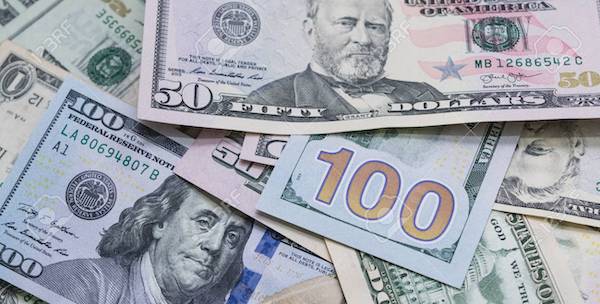Business
Nigeria’s foreign reserves slump to two–year low after Tinubu’s forex reforms

Foreign exchange (Forex) scarcity will persist in Nigeria as the country’s external reserves fell to the lowest level since August 2021, data from the Central Bank of Nigeria (CBN) has shown.
CBN reported that Nigeria’s foreign reserves fell to $33.9 billion on Wednesday, July 19, below the $35.14 billion reported on May 26, three days before former President Muhammadu Buhari left office.
The international reserves have been dwindling under President Bola Tinubu. Since he took over office from Buhari, the external reserves went down by 3.32 per cent.
Ripples Nigeria gathered that since the external reserves hit $34.01 billion on August 31, 2021, it has been hovering above that figure until Tuesday and Wednesday, when the foreign reserves slumped to $33.99 billion and $33.98 billion, respectively.
Is Tinubu’s foreign exchange reforms failing?
The decline in the international reserves followed Tinubu’s foreign exchange reform meant to strengthen the naira against the dollar.
Tinubu suspended the governor of the CBN, Godwin Emefiele, to enable a review of the forex policies under the former apex bank chief.
READ ALSO:Dollar gains against Naira amid decline in foreign reserves
Some of the reforms by Tinubu are the devaluation of the naira, and unification of the multiple foreign exchange rates, which resulted in the merging of all the official rates into the Investors’ and Exporters’ window.
He also ended the RT200 rebate programme for non-oil proceeds, but the CBN retained the restriction on 43 items that are not allowed to access forex.
The Lagos Chamber of Commerce and Industry (LCCI) had advised the CBN to lift the forex restriction on the 43 items, as it is pushing traders involved in the businesses to the black market, thereby, costing the I&E window proceeds of their transactions.
In the short term, the reforms are struggling to ramp up the foreign reserves which have dropped $1.16 billion within two months.
Amid the reforms, the exchange rate between the naira and the dollar has been pushed to N768/$1 as of Thursday, from the N471.67/$1 reported a day before the devaluation of the Nigerian currency on June 14, 2023.
Tinubu’s reforms are doing the opposite of their objective in the short term, although the World Bank and International Monetary Fund (IMF) have been calling for such reforms to boost Nigeria’s economy.
Join the conversation
Support Ripples Nigeria, hold up solutions journalism
Balanced, fearless journalism driven by data comes at huge financial costs.
As a media platform, we hold leadership accountable and will not trade the right to press freedom and free speech for a piece of cake.
If you like what we do, and are ready to uphold solutions journalism, kindly donate to the Ripples Nigeria cause.
Your support would help to ensure that citizens and institutions continue to have free access to credible and reliable information for societal development.






















